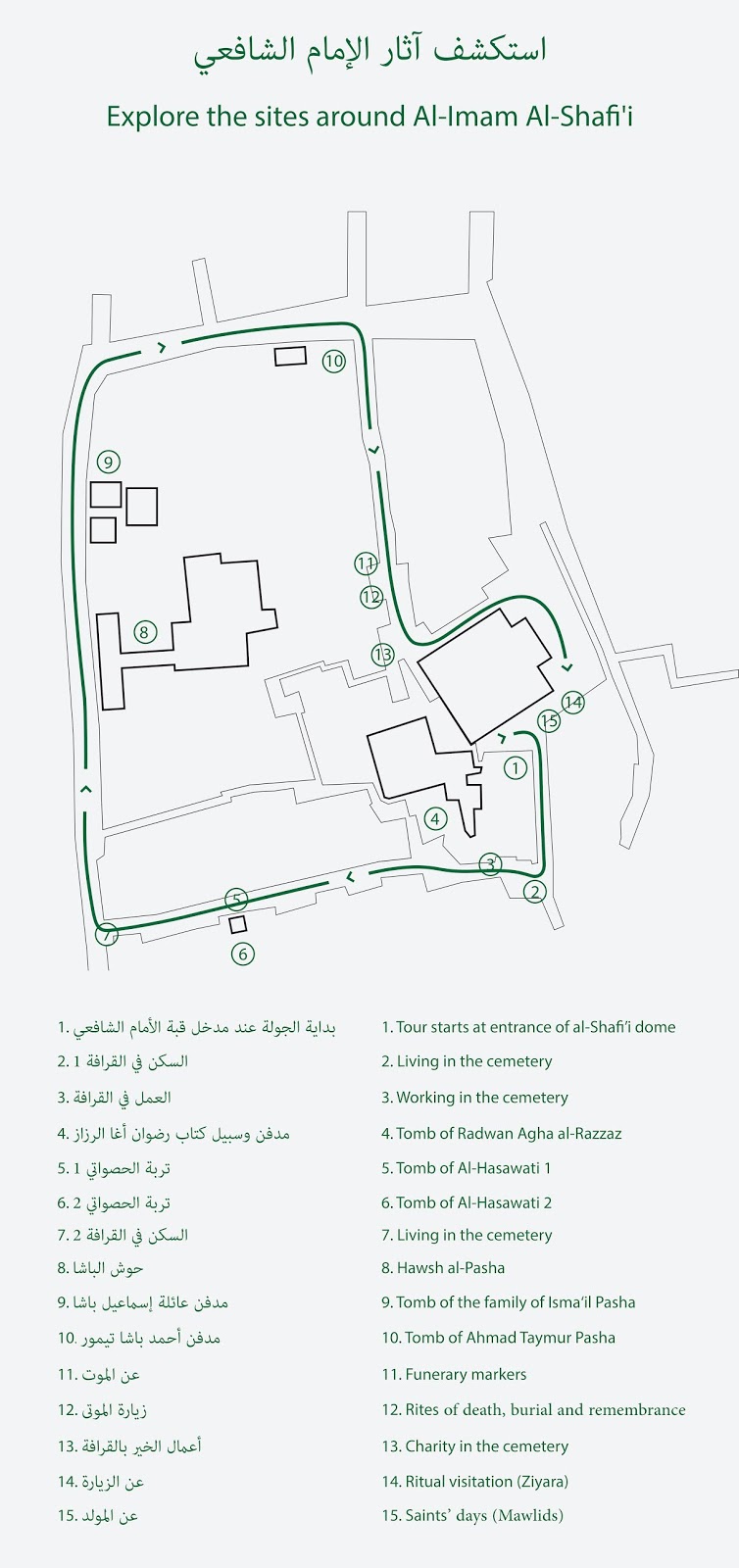تربة الحصواتي 2 / Tomb of al-Hasawati 2
التاريخ الشفهي
تختلف نظرة الغرب للمقابر عن نظرتنا لها. فبالثقافة الغربية المقابر أماكن مخيفة مسكونة بالأشباح. بينما لا وجود للأشباح الشريرة بالثقافة الإسلامية. هناك الجن الذي يعيش على الأرض في عالم موازي ومثله مثل الإنسان به الطيب والشرير. ولأن القرافة مكان مبروك يكثر به الدعاء وتلاوة القرآن فلا مكان للجن الشرير به. وبالتالي تعتبر المقابر مكانًا آمنًا يحمي الإنسان من مخاطر هذا العالم الموازي. الأرواح الوحيدة التي قد تحوم بالقرافة هي أرواح الأولياء والصالحين. يرى الكثير من علماء الدين أن أرواحهم لها القدرة على التنقل عبر الزمان والمكان بالبرزخ (والبرزخ زمان ومكان التقاء الحياة بالموت). ذلك على عكس الأموات العاديين الملتزمين بالبقاء بالقبر. ويذهب البعض إلى أكثر من ذلك فيعتقدون باحتمالية ظهور الأولياء في حالات نادرة مثلما روي هنا عن ظهور الحصواتي. والكثير مما يحكى عن الحصواتي يحتمل التأويل - هل هو فعلًا مدفون هنا أم أن هذه القبة مشهد رؤية؟ وهل كان فعلًا من نسل النبي ؟ ولو الأمر كذلك -كيف كان يلم الحصا من تحت قدميه؟
Oral History
In the West, cemeteries are believed to be dark scary places haunted by ghosts. Ghosts as a concept do not exist in Islamic culture. The only non-corporeal beings are jinni and they are nor ghosts. They are a parallel type of beings that are made of fire – humans are made of earth. They exist side by side with humans and as with humans, they could be good or bad. Cemeteries, because they are a place of prayer, supplication and Quran and because they are where the virtuous are buried, would never attract bad jinni, only good virtuous ones. In that sense, the cemeteries are a safe place where people are protected from harm. Spirits of dead people are bound to their graves and this is why people come to the cemetery to visit them. The only spirits of the dead that travel freely are walis or companions of God. Many Islamic scholars argue that exalted religious figures that rise to the level of walis are not tied to their graves like ordinary people. Their spirits can travel anywhere through the barzakh, the barzakh being a liminal place and time between life and death. It does not have the negative connotations that limbo has in Christianity. It is simply a conduit for the virtuous that allows them an existence beyond death. They may even manifest themselves as a benevolent presence the way al-Hasawati (who may or may not be buried here and may or may not have removed pebbles from under the prophet’s feet and may or may not be a descendant of the prophet) did.

